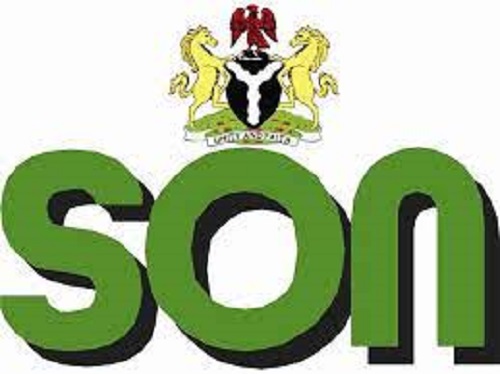The Director General of Standards Organisation of Nigeria (SON), Farouk Salim, has urged the Federal Government to allow the agency to return to the nation’s ports.
Salim, who made the call in Abuja on Thursday, said the move would help the organisation to effectively check the influx of substandard products into the country as trading progresses under the African Continental Free Trade Area (AfCFTA).
SON was first evicted from the port along with NAFDAC and five other agencies in 2006 under the administration of President Olusegun Obasanjo.
The agencies, however, plotted their way back into the port in 2008 after the change of administration in the country.
The were ejected again in 2013 by the then Minister of Finance and Coordinating Minister of the Economy, Dr. Ngozi Okonjo-Iweala.
The eviction of the agencies from the port was to reduce the bottleneck associated with cargo clearance at the nation’s gateways.
Salim, however, said for Nigeria to effectively curb the influx of substandard goods, especially as trading under the AfCFTA continues, the SON workforce should be allowed to return to the ports.
“We are supposed to ensure that the borders and the ports are monitored properly, and in doing this we protect the country from substandard goods.
“One of such ways is to make sure that the employees of SON are in the port of entries in the country, especially the Lagos port where majority of goods comes into this country.
“Our people can be efficient if we are allowed to work at the point of entry of these goods, but right now we are not allowed at the ports.
“They allow us once in a while to check goods but that should not be the way, because SON as an organisation should not depend on the kindness of other organisations to do its work.
“The 2015 Act, Section 7(30b) says the Standard organisation must be at the port of entry into this country,” he said.
He argued that although there were other agencies of government at the ports, SON has the statutory obligation and the knowledge to identify substandard products.
He said, “What NAFDAC and the Customs are doing at the ports are totally different from what SON does. We get along with them very well but we don’t need to depend on them because we are supposed to be in the ports by right, except if the law is changed.
“One of the problems we are having for not being officially allowed into the ports is the inability to provide ordinary offices for our employees.
“A typical example is in Port Harcourt where our officers are now squatting with various offices, and every now and then the persons they are squatting with have asked them to leave.
“We requested (for) a space to build our office but we were told we will not be allowed, so we could not build a property befitting of our organisation for our staff.”


Comment here